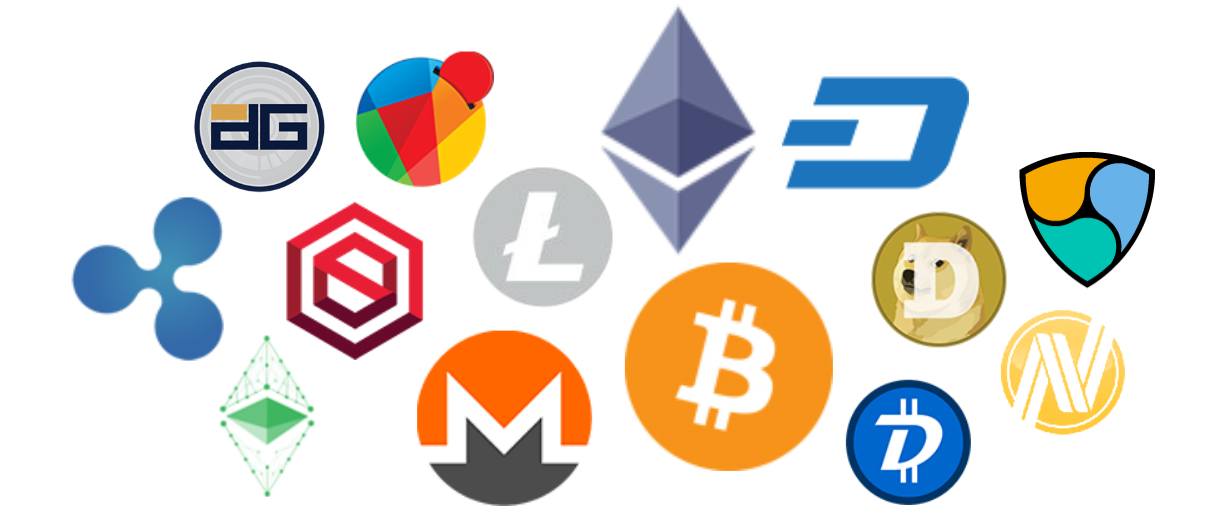
Cryptocurrency learning courses are becoming essential as digital currencies reshape our financial landscape, providing everyone from beginners to seasoned investors with the knowledge they need. These courses cover a wide array of topics, including the fundamentals of blockchain technology, the variety of cryptocurrencies available, and their practical applications in today’s economy. With a focus on interactive learning and hands-on experiences, these programs cater to diverse audiences eager to navigate the complexities of the crypto world.
In a rapidly evolving financial environment, understanding cryptocurrencies is not just a luxury—it’s a necessity. Whether you’re looking to invest, enhance your career, or simply satisfy your curiosity, a cryptocurrency learning course can equip you with the skills to thrive in this innovative sector.
Introduction to Cryptocurrency Learning Courses
Cryptocurrency learning courses are designed to provide individuals with a comprehensive understanding of digital currencies and the underlying technologies that support them. These courses encompass a range of topics from the basics of cryptocurrencies to the intricacies of blockchain technology and market analysis. As cryptocurrencies gain traction in the financial world, the importance of cryptocurrency education becomes increasingly apparent for both investors and enthusiasts.In today’s financial landscape, being informed about cryptocurrencies can lead to better investment decisions and an understanding of the potential risks involved.
Target audiences for these courses include beginners looking to learn about digital assets, investors seeking to enhance their knowledge, and professionals aiming to integrate blockchain technology into their businesses. Each group has its own learning objectives, whether it’s grasping fundamental concepts or exploring advanced trading strategies.
Course Content Overview

Typical cryptocurrency learning courses cover a variety of topics that equip learners with the necessary skills and knowledge. Key subjects often include:
- Introduction to Cryptocurrencies: Understanding Bitcoin, Ethereum, and altcoins.
- Blockchain Technology: Exploring how blockchain functions and its significance.
- Market Analysis: Techniques for analyzing cryptocurrency markets and price trends.
- Wallets and Security: Learning how to securely store and manage digital assets.
- Regulatory Environment: Understanding the legal aspects surrounding cryptocurrencies.
Blockchain technology plays a pivotal role in the functioning of cryptocurrencies. It serves as a decentralized ledger that ensures transparency and security in transactions. This technology is not only fundamental to how cryptocurrencies operate but is also revolutionizing various industries beyond finance.The differences between various cryptocurrencies are significant, as each has unique features and use cases. For instance, Bitcoin is primarily used as a digital currency, while Ethereum allows for smart contracts and decentralized applications.
Understanding these differences helps learners grasp how to utilize each cryptocurrency effectively.
Learning Formats and Methods

Cryptocurrency courses are offered in various formats to cater to different learning preferences. Popular formats include:
- Online Courses: Flexible and accessible, allowing learners to study at their own pace.
- In-Person Classes: Traditional classroom settings that facilitate direct interaction with instructors.
- Hybrid Models: A combination of online and in-person learning to maximize flexibility and engagement.
Teaching methods utilized in these courses can vary, but common approaches include:
- Lectures: Structured lessons that convey essential information about cryptocurrencies.
- Workshops: Interactive sessions focused on practical applications and hands-on experience.
- Hands-On Projects: Opportunities for learners to apply their knowledge in real-world scenarios.
Interactive elements significantly enhance the learning experience, with examples such as quizzes to test understanding and group discussions to encourage collaboration. These methods not only make learning more engaging but also reinforce critical concepts.
Tools and Resources for Learning
Various tools and platforms are essential for effective cryptocurrency education. These include:
- Online Learning Platforms: Websites like Coursera and Udemy offer a variety of courses.
- Cryptocurrency Tracking Apps: Apps such as CoinMarketCap assist in tracking market prices.
- Blockchain Explorers: Tools like Etherscan allow users to view blockchain transactions.
Recommended resources for further reading include:
| Type | Title | Author/Source |
|---|---|---|
| Book | The Basics of Bitcoins and Blockchains | Antony Lewis |
| Article | Understanding Blockchain Technology | Investopedia |
| Website | CoinDesk | CoinDesk |
Mobile applications also play a crucial role in learning about cryptocurrencies by providing up-to-date information and tracking functionalities.
Certification and Validation
Obtaining a certification from a cryptocurrency course can greatly enhance a learner’s credentials. Certifications not only validate the knowledge and skills acquired but also demonstrate a commitment to professional development in the cryptocurrency field. Several reputable institutions offer accredited cryptocurrency courses, such as:
- University of California, Berkeley
- MIT Media Lab
- Stanford University
Having a certification from a recognized institution can significantly improve career prospects in the rapidly evolving crypto industry. Employers often seek candidates with formal education in cryptocurrencies, as it shows a level of expertise and dedication to the field.
Challenges and Considerations
Studying cryptocurrencies can present several challenges for learners. Common obstacles include:
- Complex Terminology: The jargon and technical terms used in the cryptocurrency space can be overwhelming.
- Market Volatility: The rapidly changing nature of cryptocurrency prices can lead to uncertainty.
- Lack of Standardization: The absence of uniform regulations can make it difficult to navigate the landscape.
To overcome these challenges, learners can employ strategies such as joining online forums for support, engaging with study groups, and dedicating time to familiarize themselves with the terminology. Comparing different learning approaches reveals their respective pros and cons. Online courses offer flexibility, while in-person classes provide direct interaction with instructors. Hybrid models can blend the benefits of both, making them an appealing option for learners.
Future Trends in Cryptocurrency Education
Emerging trends in cryptocurrency education reflect the ongoing evolution of the digital currency landscape. Increasing demand for blockchain skills in various industries is driving educational institutions to develop more targeted courses. As the cryptocurrency sector evolves, the importance of keeping educational offerings updated cannot be overstated. Predictions indicate that skills such as blockchain development, regulatory compliance, and financial modeling will be in high demand.
Educational institutions are likely to adapt by incorporating practical experience, such as internships and collaborations with crypto companies, into their curricula. This approach will better prepare learners for the realities of working in the cryptocurrency sector, ensuring they are equipped with relevant skills for future opportunities.
Closing Summary
As we conclude our exploration of cryptocurrency learning courses, it’s clear that education in this field is not only valuable but crucial. The insights gained through these programs can empower individuals to make informed decisions, seize career opportunities, and adapt to the fast-paced changes in the cryptocurrency space. Embracing this knowledge today can pave the way for a more secure financial future tomorrow.
Expert Answers
What is a cryptocurrency learning course?
A cryptocurrency learning course is an educational program that covers the principles and practical aspects of cryptocurrencies and blockchain technology.
Who should take a cryptocurrency learning course?
Anyone interested in understanding cryptocurrencies, from beginners to professionals looking to enhance their skills in finance or technology.
What are the benefits of obtaining a certification in cryptocurrency?
Certification can enhance your credibility, improve job prospects, and demonstrate your commitment to learning in the fast-changing crypto industry.
Are cryptocurrency learning courses available online?
Yes, many cryptocurrency courses are offered online, providing flexibility for learners to study at their own pace.
How long does it take to complete a cryptocurrency learning course?
The duration varies by course, typically ranging from a few weeks to several months, depending on the depth and format of the material covered.
